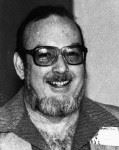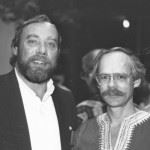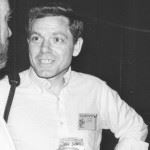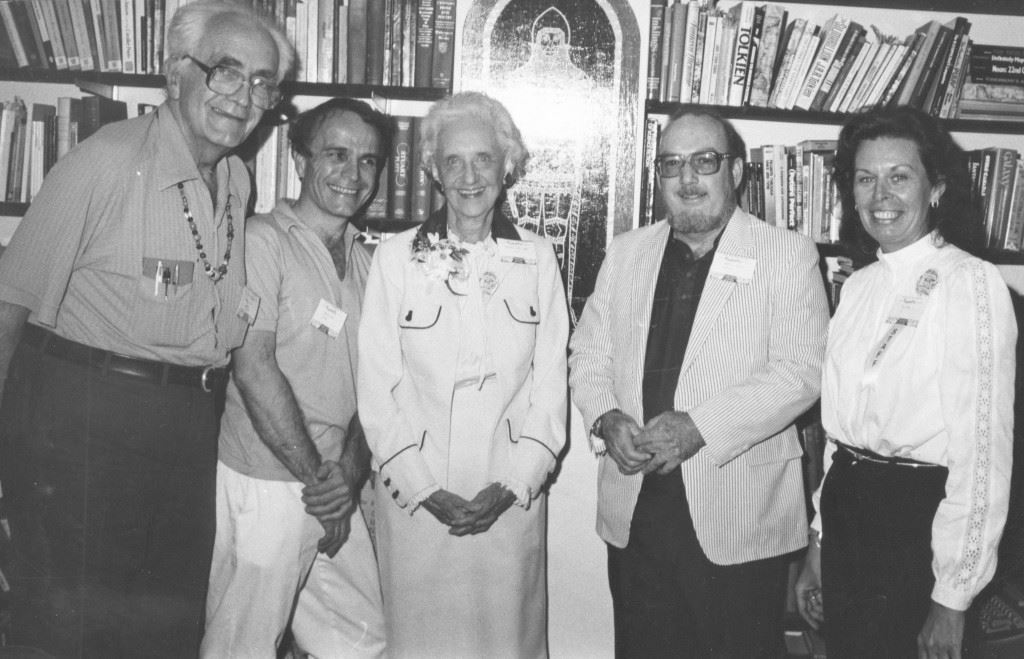

Originally written by Robert A. Collins and heavily edited by Judith Collins. Parts in italics were taken from an in-house publication presented and sold at ICFA 30, March 2009: Fantastic Machinations: ICFA 30 Retrospective, 1980-2009. Eds. David G. Hartwell and Judith Collins McCormick. New York: Dragon Press, 2009. pp. 1-3.
 Thirty years ago, as I was putting together the first of these conferences at Florida Atlantic University, I understood that I was doing something bizarre and quixotic. An academic venue for serious studies in fantasy and science fiction raised many more eyebrows then than it does today. In fact, the prevailing attitude of the establishment was hostile. In those few universities where “Sci Fi” was in the curriculum, it was considered a “gut course,” a sop to lazy students who wanted “popular” literature. It could not be taken seriously, and teachers who did so were penalized, typed as second-rate scholars, lacking seriousness, etc. Teaching it, or worse, becoming “popular” while doing so, was running a big risk–no tenure.
Thirty years ago, as I was putting together the first of these conferences at Florida Atlantic University, I understood that I was doing something bizarre and quixotic. An academic venue for serious studies in fantasy and science fiction raised many more eyebrows then than it does today. In fact, the prevailing attitude of the establishment was hostile. In those few universities where “Sci Fi” was in the curriculum, it was considered a “gut course,” a sop to lazy students who wanted “popular” literature. It could not be taken seriously, and teachers who did so were penalized, typed as second-rate scholars, lacking seriousness, etc. Teaching it, or worse, becoming “popular” while doing so, was running a big risk–no tenure.
***

Robert A. Collins of Florida Atlantic University, with the counsel of Roger C. Schlobin of Purdue University and then aspiring author Timothy R. Sullivan, first conceived the idea of the International Conference on the Fantastic in the Arts in 1979 after attending Marshall B. Tymn’s 4th Conference on Teaching Science Fiction in Boca Raton, Florida. Collins had long bemoaned the hostility with which readers and students of fantasy literature were greeted by scholars, and Schlobin had recently been rebuffed by members of the SFRA for suggesting they add the word “fantasy” to the description of what their organization researched. Collins attempted to launch a conference focused on the study of all literature of the fantastic, including science fiction works as well as those in other “genre” classifications. Together, Collins, Schlobin, and Sullivan opened requirements for submissions, using Eric Rabkin’s definition of the Fantastic as any literature in one hundred eighty degree opposition to realism.
***
So I was astonished by the response to our first call for papers. We had sent five thousand fliers to colleges of arts and sciences in the summer of 1979, paid for by a gift from Margaret Gaines Swann, in memory of her son, the fantasist Thomas Burnett Swann. The bemused tolerance of my dean, Jack Suberman, got us an academic umbrella through the university’s Division of Continuing Education. But the conventional wisdom of the day told us to expect, if we were lucky, perhaps a dozen papers (one-quarter of one percent of the size of the mass mailing).
We got more than 600. They came in so fast we realized they could not have been written for us. Apparently, many academics had been trying to pursue these genre interests for years, without a venue, and we had become the right place at the right time.
***
With a gift of operating funds provided by Margaret Gaines Swann, mother of the late FAU professor and fantasy author Dr. Thomas Burnett Swann, Collins organized the first ICFA on an experimental basis on the campus of FAU. The first meeting, in March of 1980, was so successful that it inaugurated an annual celebration of the fantastic, with the members of FAU’s English and foreign language departments refereeing papers and editing annual proceedings. In 1982, Collins and several interested parties at the 3rd ICFA meeting formed the International Association for the Fantastic in the Arts, electing Jules Zanger President and Roger Schlobin Vice President.
***
 It was a heady time. Surprise and excitement ran through the whole college, and we attracted a great many “locals” to our cause. Nobel prize-winner Isaac Singer, who lived in Miami Beach, agreed to be our Guest of Honor. He spoke to a full house in the University Theater. Rabkin’s keynote speech was roundly applauded, and all the attendees were obviously having a great time, despite being ferried from a dozen small motels back and forth to the campus on “Lolly the Trolley” (a streetcar cum motorbus popular for hauling partygoers about—we rented it).
It was a heady time. Surprise and excitement ran through the whole college, and we attracted a great many “locals” to our cause. Nobel prize-winner Isaac Singer, who lived in Miami Beach, agreed to be our Guest of Honor. He spoke to a full house in the University Theater. Rabkin’s keynote speech was roundly applauded, and all the attendees were obviously having a great time, despite being ferried from a dozen small motels back and forth to the campus on “Lolly the Trolley” (a streetcar cum motorbus popular for hauling partygoers about—we rented it).
Margaret Swann’s offer to fund us “again next year” drew a standing ovation at the banquet in the campus cafeteria, and we were off to a very promising start. In the years immediately following, we remedied obvious weaknesses in our initial planning. We set up an Association to oversee the academic structure of the conference, selecting “Division Heads” among the first attendees to vet the papers in their areas. And to avoid bopping back and forth to small motels, we moved the conference to the newly constructed Sheraton Hotel in Boca Raton, where meeting rooms were free (the university had charged us for them), and all the participants were lodged in one place.
To our delighted surprise, we were accepted in both academic and fannish circles for a while. We made the front page of Locus in our second year, and got the nickname “Swanncon.” Meanwhile, Greenwood Press gave us a continuing contract to publish selected papers from the conference (Scope of the Fantastic, etc.), and John Barth, a writer with a huge academic following, became our second Guest of Honor. His speech on Scheherazade ended with a rhetorical and syntactical tour de force that brought him a standing ovation. We have it on tape, for those who are curious. The second conference also premiered an avant-garde symphonic suite, Starscapes, by Thai composer Somtow Sucharitkul, also taped. Somtow himself directed the FAU Orchestra, with Barry Malzberg playing second violin in the ensemble. (Both tapes are now housed at FAU Library’s Special Collections Department.)
From the first we invited as many authors as we could, on the premise that interacting with them was a unique opportunity for academic critics. (For example, Samuel Delany told me, after listening to my paper on The Einstein Intersection: “That was a very white reading.”) And for several years we also conducted a writer’s workshop, headed by Gene Wolfe at first, and then James Gunn. The teachers in these workshops were many of the authors we invited each year, including Brian Aldiss (our second academic guest, on the basis of Billion Year Spree, the only comprehensive history of science fiction), Harlan Ellison, Fritz Leiber, Theodore Sturgeon, Kate Wilhelm, Damon Knight, Samuel Delany, Frederik Pohl, John Morressy, Barry Malzberg, etc.) My favorite alumna of these workshops was Sharon Baker, who published several striking novels before her untimely death of cancer in 1991.

***
Collins would continue as Conference Organizer until after the 5th meeting in 1984, when FAU and Mrs. Swann withdrew funding. After relentless searching for a new home for ICFA, now-President Schlobin finally accepted Lamar University’s offer to underwrite the 6th meeting and relocated to Beaumont, Texas, in 1985. At this time, undergoing severe personal financial trouble, Collins declared himself unable to attend, but Schlobin generously responded with the establishment of the Robert A. Collins Service Award, at that time granting to faithful servants of the ICFA, as occasion dictated, a lifetime membership in IAFA with registration fees paid at all future ICFAs. Collins was the first recipient at the Beaumont meeting in 1985, Schlobin the second in 1986. By this time Marshall B. Tymn had taken the reins as third IAFA President, moving the 1986 and 1987 meetings to Houston.
The Houston years, underwritten almost entirely by Hap Henriksen’s Carnegie-Mellon grant to create a Museum of Fantasy and Science Fiction, were abundant ones, and when the grant expired (with no museum existent), Tymn moved the ICFA to Dania, Florida, and the Ft. Lauderdale Airport Hilton, recruiting the joint sponsorship of Broward Community College and FAU.
In 1988, IAFA began publishing the Journal of the Fantastic in the Arts, an interdisciplinary quarterly founded and edited by then IAFA Vice President Carl Yoke. In 1989 (after ten years of appointments made by committees), IAFA held its first general election for positions on the Executive Board, resulting in Donald E. Palumbo and C.W. Sullivan III taking the helm as President and Vice President, respectively. At the 1991 meeting, Sullivan was then elected President, with Nicholas Ruddick as Vice President.
First Sullivan and then William A. Senior, elected IAFA President in 1994, worked for several years toward saving the ICFA from near-bankruptcy, making it not only solvent but smoothly self-supporting.
Meanwhile, Donald E. Morse (deserving recipient of the Collins Award in 1990) had all along exerted heroic efforts to organize each meeting since ICFA had first moved from Collins’ home town of Boca Raton back in 1985. In 1991, Morse researched options for relocating but eventually accepted a new contract with the Ft. Lauderdale Airport Hilton, where the ICFA remained until it moved in 2008 to the Marriott Orlando Airport Hotel.
Following the Presidency of William Senior from 1994-98, the IAFA elected Len Hatfield President and also created the position of Second Vice President on the Executive Board, electing Veronica Hollinger First VP and Joe Andriano Second VP. In 2002, when Hatfield’s term was to end, the Board faced some difficulty filling his position. Past Presidents Sullivan and Senior then agreed to serve as President in alternating years and did so until Mike Levy was elected in 2004, with Farah Mendlesohn and Robin Reid as First and Second VPs, respectively. In 2007, Mendlesohn was elected President, with Christine Mains as First VP, joining Robin Reid already serving as Second VP.
In 2009, Sydney Duncan was elected to succeed Robin Reid as 2nd VP, and Bill Clemente was re-elected Treasurer. In early 2010, the membership elected Jim Casey President, Sherryl Vint First Vice President, and (for what is newly an elected position) Crystal Black Public Information Officer.
A lot has changed since its inception, but the International Conference on the Fantastic in the Arts is still one of the most diverse, energetic, provocative, and addictive interdisciplinary gatherings in the world. While the ICFA itself is real, it still reveres Rabkin’s ideal for art: a one hundred eighty degree opposition to armchair realism. It does this additionally through its online newsletter and the Journal of the Fantastic in the Arts but primarily through its magical, other-worldly, annual meetings.
IAFA Presidents:
- Jules Zanger: 1983-84
- Roger Schlobin: 1984-86
- Marshall Tymn: 1986-89
- Don Palumbo: 1989-92
- Chip Sullivan: 1992-95
- Bill Senior: 1996-99
- Chip Sullivan: 1999-2000
- Bill Senior: 2000-01
- Len Hatfield: 2001-04
- Mike Levy: 2004-07
- Farah Mendlesohn: 2007-10
- Jim Casey: 2010-13
- Sydney Duncan: 2013-16
- Sherryl Vint: 2016-19
- Dale Knickerbocker: 2019-22
- Pawel Frelik: 2022 - currently serving